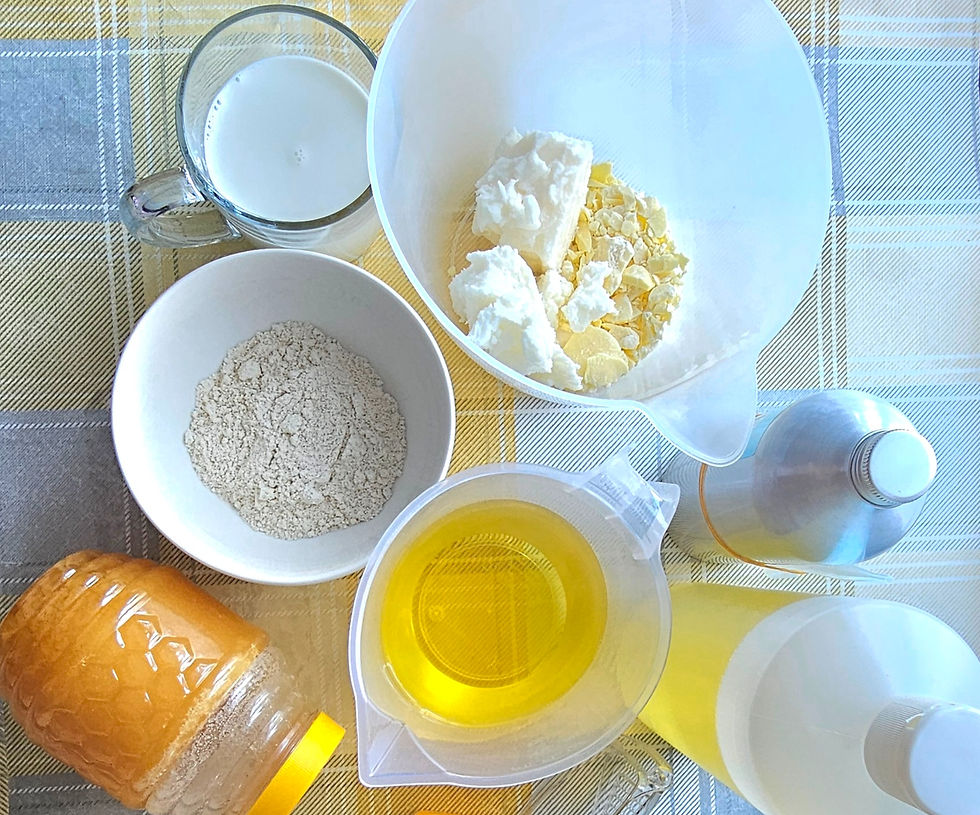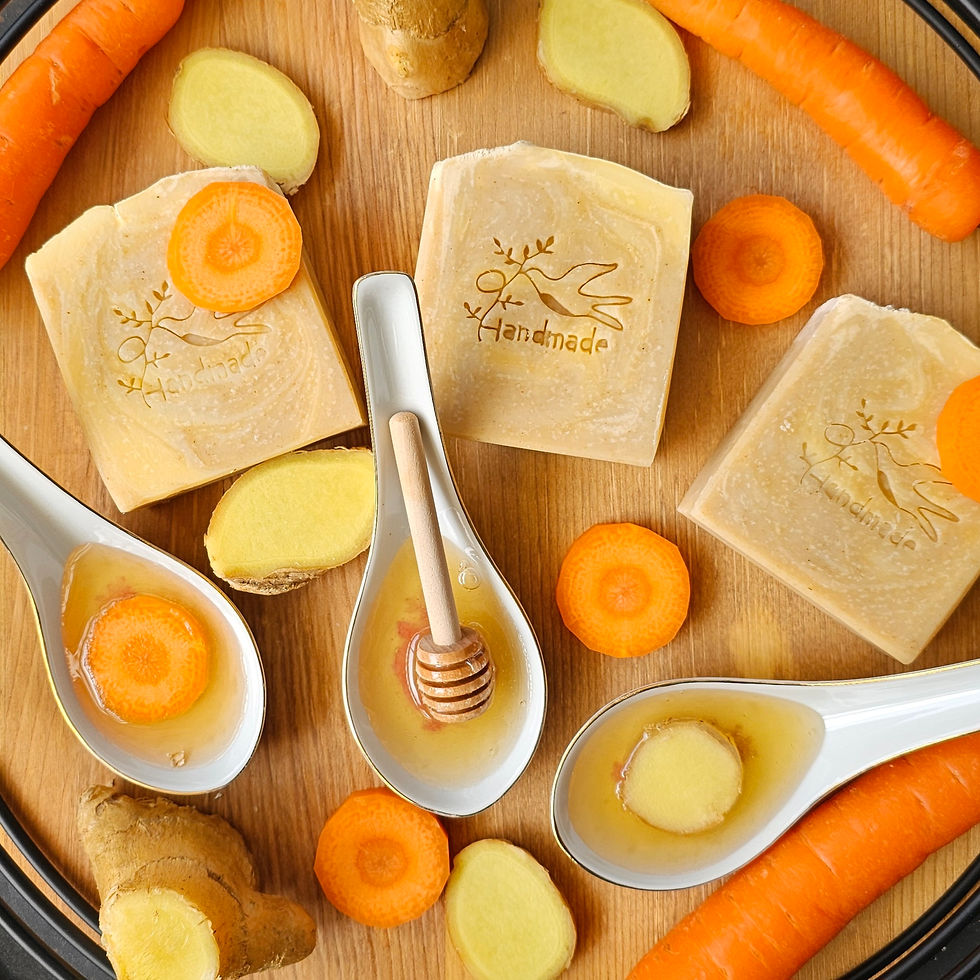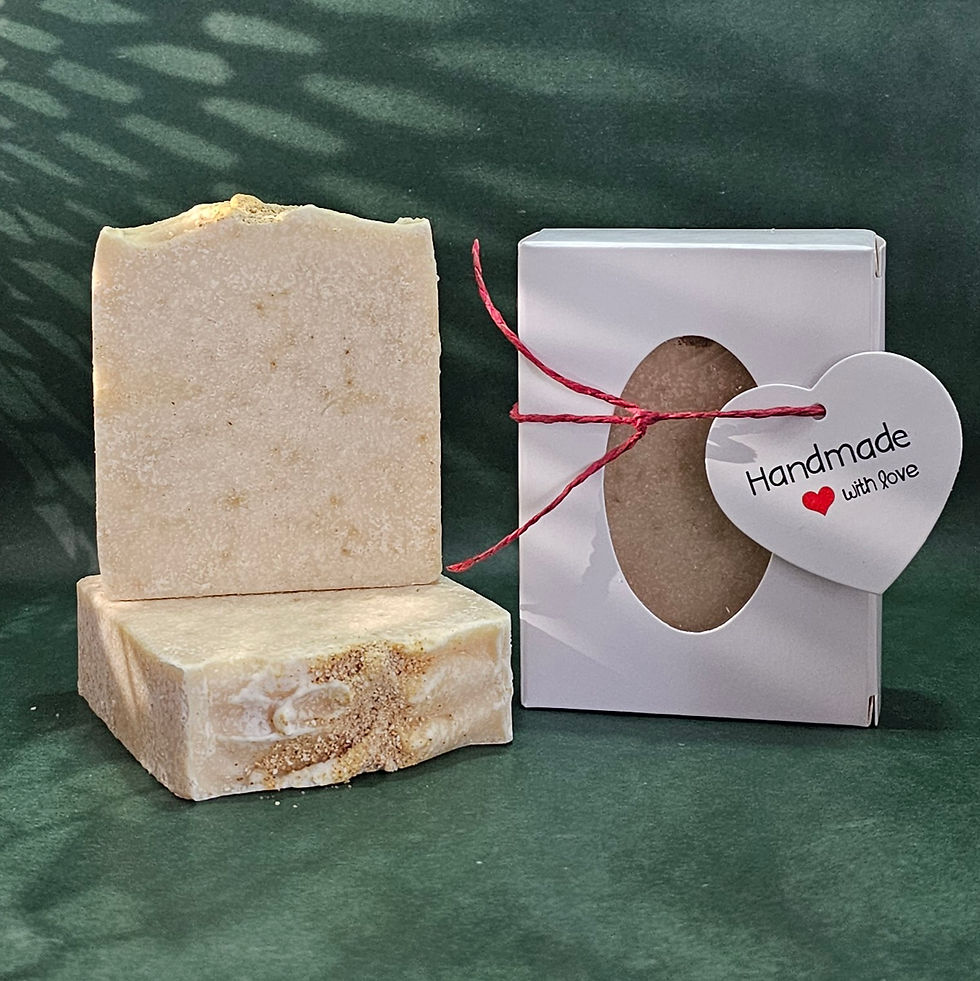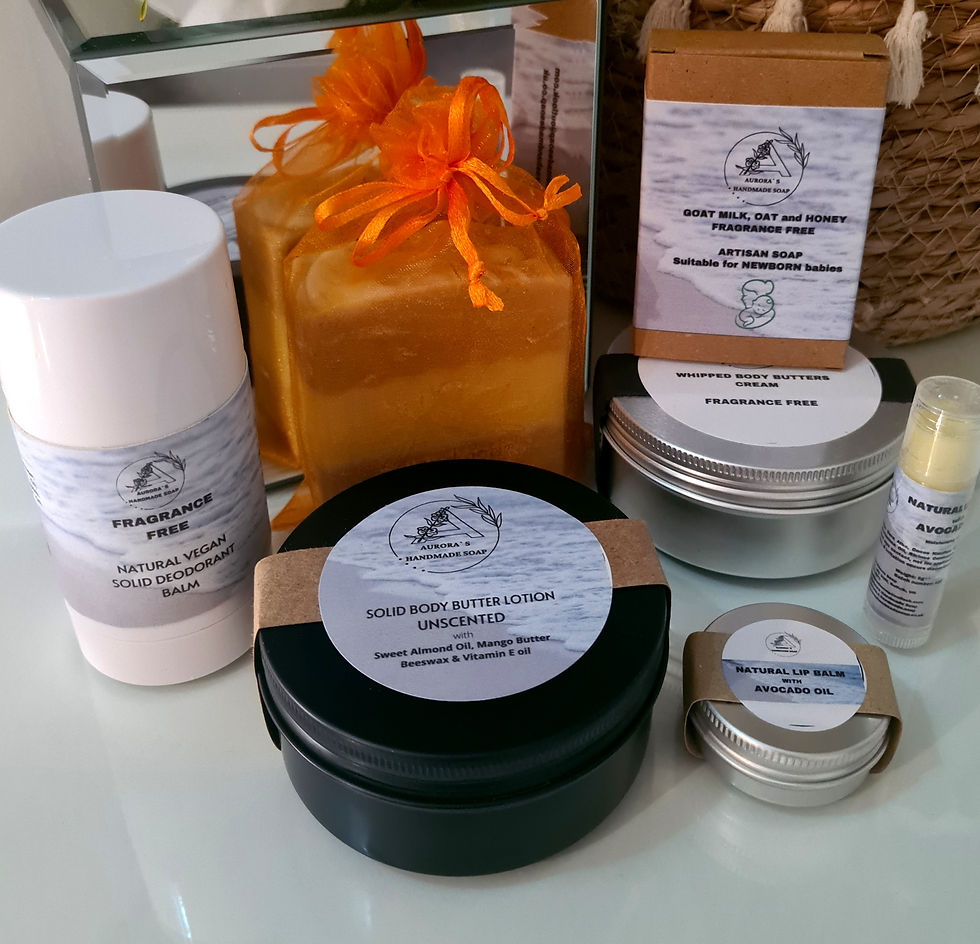The World of Handmade Soap
- ashandmadesoap
- Jul 22, 2025
- 5 min read
Updated: Jul 28, 2025
In recent years, there has been a significant shift toward natural skincare products. With increasing awareness about the harmful ingredients often found in commercial cosmetics and soaps, many people have turned to alternatives that promise a healthier and more sustainable choice. One such option is handcrafted skincare soap. This blog will explore the many benefits of using handmade soap, the reasons it stands out and why it could be your best choice for a natural skincare routine, but also the legally requirements to comply with when comes to sale your handmade soaps.
Handcrafted Skincare Soap: A Gentle Touch
The handmade cold process soap industry is characterized by small-batch production, attention to detail, and a commitment to using natural ingredients. Soap makers carefully craft each bar using the cold process method, which involves mixing oils and lye to create a rich, nourishing soap that retains its natural glycerine.


Handcrafted skincare soap is made using natural ingredients that are gentle on the skin. Unlike commercial soaps that often contain harsh chemicals and synthetic additives, handmade soap is typically crafted with oils, butters, and natural fragrances. Moreover, the cold process method allows for the retention of natural glycerine, a humectant that helps retain moisture in the skin. Glycerine is naturally produced during saponification, and remains in the soap, enhancing its moisturizing properties. On the other hand, ingredients like essential oils, shea butter, and coconut oil not only cleanse but also nourish the skin.
For example, shea butter is known for its moisturizing properties, making it an ideal choice for those with dry or sensitive skin. On the contrary, commercial soaps may strip away natural oils, leaving the skin feeling tight and dry.


Some handmade soap makers incorporate in their soaps detoxifying clays, salts, pure vegetable puree, plant infusion, milk, or other natural ingredients which can provide gentle exfoliation, while also nourishing and moisturizing the skin, leaving it feeling soft and refreshed. Fan Fact: Half of Aurorashandmadesoap `s products contain clays, and 40% of their soaps are crafted using Sea Salt or Himalayan Salt.

Moreover, the creation of handcrafted soap often involves traditional methods that promote sustainability. Cold-processed soap, for instance, retains more of the natural properties of the oils used and often comes packaged in eco-friendly materials. This commitment to sustainability resonates with consumers who are becoming more environmentally conscious.
The Art of Crafting Soap
Creating handmade soap is an art form, much like making a fine cheese or aging a good wine. Each bar is carefully crafted with natural ingredients, and the process involves a curing period. This curing time allows the soap to harden and develop its full potential, enhancing its durability and effectiveness. Each soap maker brings their own creative flair, resulting in a diverse range of scents, colours, and texture. Each batch of handmade soaps is planned ahead, first of all imagined in the artisan`s mind, often born with a story behind. Then and only then is it truly crafted.
Another aspect of handmade soap is the customization available with unique fragrances or designs. The artisans can choose specific scents or ingredients based on their individual beliefs or needs. For example, someone with oily skin might prefer soaps infused with tea tree oil, known for its acne-fighting properties, while someone with sensitive skin might gravitate towards chamomile-infused options.

The Benefits of Natural Ingredients
The skin, the largest organ of our body, deserves the best care possible. Handmade soaps are designed to be gentle and nourishing, making them ideal for a variety of skin types, including sensitive and dry skin.
Choosing handmade soap means opting for products made from natural ingredients that often boast numerous skin benefits. Ingredients like olive oil, castor oil, and essential oils are common in naturally crafted soaps.
Olive Oil: Rich in antioxidants, olive oil can help soothe inflammation and prevent skin aging.
Coconut Oil: Often used for its antibacterial properties, coconut oil can nourish the skin while providing a rich lather.
Essential Oils: These natural oils are used not just for their delightful scents but also offer therapeutic properties, such as lavender for relaxation or eucalyptus for invigorating freshness.
These ingredients often have multiple benefits, making them suitable for various skin types and concerns. Unlike chemical-laden alternatives that can cause irritation, natural ingredients work harmoniously with the skin.

Supporting Small Businesses and Local Artisans
By opting for handmade soap, you are not only caring for your skin but also supporting small businesses and local artisans. Many soap makers pour their passion and creativity into each bar, often telling a unique story through their art. Purchasing handmade soap can feel good knowing you are contributing to the local economy and supporting sustainable practices.
Additionally, many artisans are transparent about their sourcing methods, which promotes ethical consumption. Knowing where your ingredients come from and the impact of your purchases is empowering and contributes to a shared sense of community.
With a multitude of scents, textures, and formulas on the market, there is something for everyone. Experimenting with handcrafted soap can help you discover what works best for your skin, and you may find personalized solutions that you would not have encountered in a traditional store.
Being open to trying new soaps can lead to enriched experiences and potentially better skin health. Additionally, it's an invitation to learn about the properties of different natural ingredients and how they can play a role in your overall skincare regimen.
Experience Real Benefits With Handmade Soap
Choosing handmade soap paves the way for a healthier skincare routine. Not only are you selecting a product free from harmful chemicals, but you're also making an investment in sustainable practices and supporting local artisans. With a variety of options available, you can find exactly what you need for your unique skincare challenges.
In summary, the benefits of opting for handmade soap are clear. From artisanal craftsmanship to natural ingredients, this choice aligns with a growing awareness of health and sustainability. Whether you're dealing with sensitive skin, looking for a thoughtful gift, or simply seeking a more wholesome cleansing experience, handcrafted skincare soap stands out as an irresistible option.
The legally side of Handmade Soaps and Cosmetics in UK
Making your own soap, or purchasing from a skilled artisan, allows you to control what goes into your skincare. In UK the artisans provide clear ingredient lists, making it easier for consumers to choose products that align with their personal values and skin types.
When selling handmade soaps and cosmetics in the UK, it is essential to comply with several regulatory requirements to ensure consumer safety and uphold industry standards.
First, make sure your products meet the EU Cosmetic Products Regulation (EC) No 1223/2009, still relevant in the UK. This includes passing a safety assessment by a qualified professional, maintaining an up-to-date Product Information File (PIF), and registering new products on the UK's Cosmetic Product Notification Portal (SCPN).
Your product labels should list ingredients with their INCI names, clarify the product's use, display weight or volume, include a batch number, and provide manufacturer details and safety warnings. Your marketing should be honest, with claims supported by evidence.
Last but not least, following a Good Manufacturing Practices (GMP) ensure production quality and safety, requiring a clean workspace and consistent documentation.



Was a pleasure to dive in the world of handmade soap, a wanderful and interesting insight. Thank you for sharing this
Wanderful and interesting insights of handmade soap, thank you for sharing